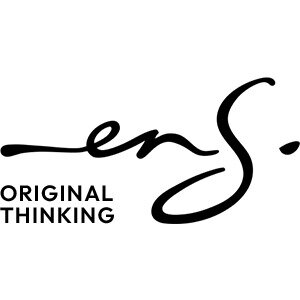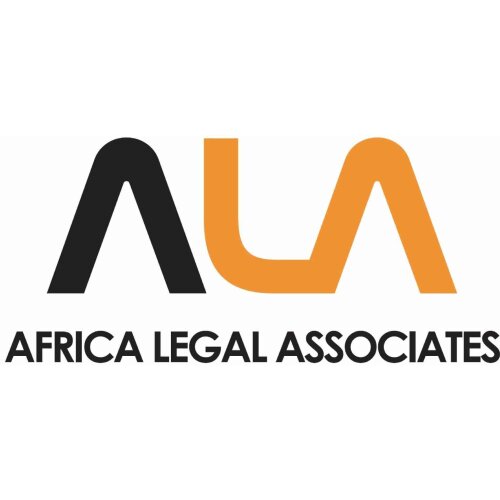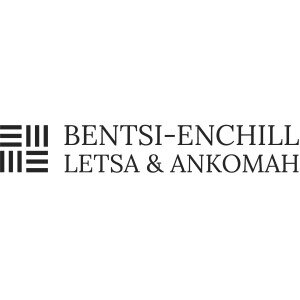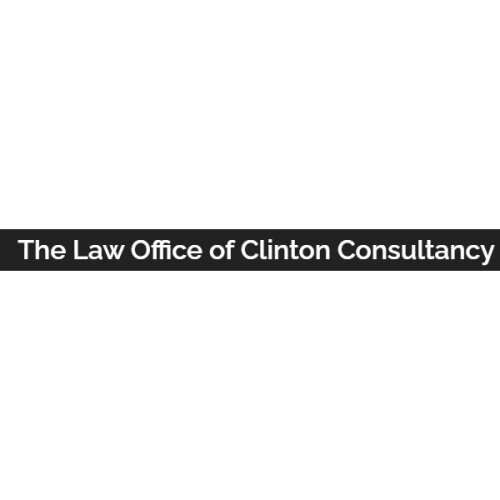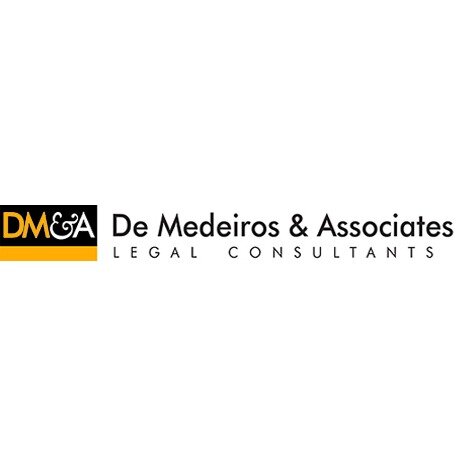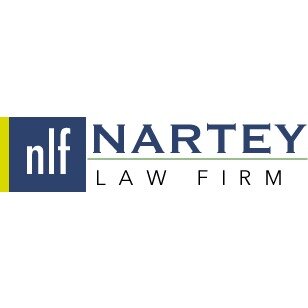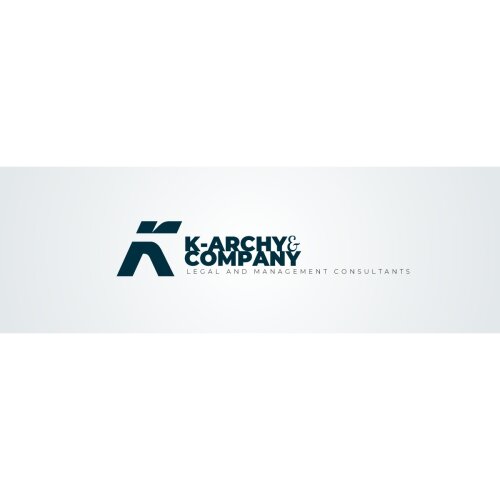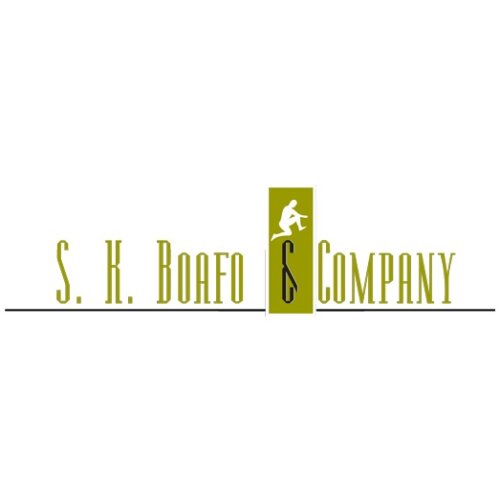Best Mortgage Lawyers in Ghana
Share your needs with us, get contacted by law firms.
Free. Takes 2 min.
Free Guide to Hiring a Real Estate Lawyer
Or refine your search by selecting a city:
List of the best lawyers in Ghana
About Mortgage Law in Ghana
In Ghana, a mortgage is a legal agreement by which a bank, building society, or other lender lends money at interest in exchange for taking the title of the debtor's property, with the condition that the conveyance of title becomes void upon the payment of the debt. The procedure and regulatory framework for mortgages in Ghana are governed by the Mortgages Act, 1972 (NRCD 96) and supported by subsequent legislations and regulations aimed at facilitating housing finance while protecting the interests of both borrowers and lenders.
Why You May Need a Lawyer
Engaging a lawyer for mortgage-related issues in Ghana can be crucial for several reasons:
- Document Review: Lawyers can help review mortgage documents to ensure all terms are fair and legally sound.
- Negotiations: They can assist in negotiating better terms with lenders.
- Legal Guidance: A lawyer provides guidance on the legal implications of mortgage terms and what they mean for your specific situation.
- Dispute Resolution: In cases of disputes or foreclosure, legal assistance is vital to protect your rights and interests.
- Compliance: Ensuring that all legal requirements and procedures are adhered to, to prevent future legal complications.
Local Laws Overview
The key aspects of mortgage laws relevant in Ghana include:
- Mortgages Act, 1972 (NRCD 96): This act provides the legal framework for creating, assigning, and discharging mortgages in Ghana.
- Equitable Mortgages: These are not registered but are recognized due to intention and nature of secure agreements between parties.
- Foreclosure Laws: Stipulates the rights of the lender in case of non-payment, including the right to repossess and sell the property.
- Interest Rate Regulations: Govern the rates that can be charged on mortgages to ensure they are within permissible bounds.
- Consumer Protection Laws: Set out protections for borrowers, including requirements for transparency and fair treatment by lenders.
Frequently Asked Questions
What is a mortgage?
A mortgage is a loan in which property or real estate is used as collateral. The borrower enters into an agreement with the lender wherein they receive funds upfront and then make payments over a specified time until they pay back the lender in full.
What documents do I need to apply for a mortgage in Ghana?
Typically, you will need proof of identity, proof of income, bank statements, and the title deed of the property you intend to mortgage, among other documents as required by the lender.
How do interest rates on mortgages work in Ghana?
Interest rates in Ghana can be fixed (the rate stays the same throughout the term of the mortgage) or variable (the rate may vary based on market conditions). It's essential to understand how these will affect your repayment amounts over time.
Can a non-citizen obtain a mortgage in Ghana?
Yes, non-citizens can obtain mortgages in Ghana, but specific conditions might apply, including residency status and the type of property one is allowed to purchase.
What happens if I default on my mortgage payments?
If you default, the lender may begin foreclosure proceedings, which can result in repossession and sale of the property to recover the outstanding debt. It’s critical to seek legal advice immediately if you face financial difficulties.
Is it possible to refinance a mortgage in Ghana?
Yes, refinancing options are available in Ghana. This typically involves obtaining a new loan to pay off an existing loan, potentially with different terms.
How can I ensure that my mortgage agreement is fair?
It's advisable to have the contract reviewed by a legal expert to ensure it complies with all relevant laws and that the terms are fair and reasonable.
What kind of legal protections do I have as a mortgage borrower?
Under the Consumer Protection Law in Ghana, borrowers are entitled to fair treatment, transparency, and the right to detailed information regarding the terms and conditions of their mortgage agreements.
Can I sell my mortgaged property in Ghana?
Yes, you can sell a mortgaged property, but the lender must be notified, and the outstanding mortgage balance will typically need to be settled as part of the sale process.
What is the process for securing a mortgage in Ghana?
The process usually involves selecting a property, applying for a mortgage, providing all required documentation, the lender assessing your application, and, if approved, signing the mortgage agreement and receiving the funds.
Additional Resources
For those seeking more information or assistance, the following resources can be beneficial:
- Ghana Home Loans: One of the major mortgage financing institutions in Ghana, offering various mortgage products.
- Bank of Ghana: The central bank which regulates financial institutions, including mortgage lenders.
- Ministry of Lands and Natural Resources: Provides information about property laws and land registration in Ghana.
- Ghana Real Estate Developers Association (GREDA): Offers resources and information related to real estate development and mortgages.
Next Steps
If you need legal assistance regarding mortgages in Ghana, consider the following steps:
- Identify Your Needs: Determine the specific legal help you need to address your mortgage concerns.
- Consult a Lawyer: Engage with a qualified lawyer who specializes in real estate or mortgage law to discuss your case and explore your options.
- Gather Documentation: Prepare all relevant documents, such as mortgage agreements, payment records, and correspondence with lenders, for your lawyer's review.
- Follow Legal Advice: Act on the professional advice given to protect your interests and ensure compliance with local laws.
- Keep Updated: Stay informed about any changes in local laws or mortgage terms that might affect your situation.
Lawzana helps you find the best lawyers and law firms in Ghana through a curated and pre-screened list of qualified legal professionals. Our platform offers rankings and detailed profiles of attorneys and law firms, allowing you to compare based on practice areas, including Mortgage, experience, and client feedback.
Each profile includes a description of the firm's areas of practice, client reviews, team members and partners, year of establishment, spoken languages, office locations, contact information, social media presence, and any published articles or resources. Most firms on our platform speak English and are experienced in both local and international legal matters.
Get a quote from top-rated law firms in Ghana — quickly, securely, and without unnecessary hassle.
Disclaimer:
The information provided on this page is for general informational purposes only and does not constitute legal advice. While we strive to ensure the accuracy and relevance of the content, legal information may change over time, and interpretations of the law can vary. You should always consult with a qualified legal professional for advice specific to your situation.
We disclaim all liability for actions taken or not taken based on the content of this page. If you believe any information is incorrect or outdated, please contact us, and we will review and update it where appropriate.
Browse mortgage law firms by city in Ghana
Refine your search by selecting a city.



